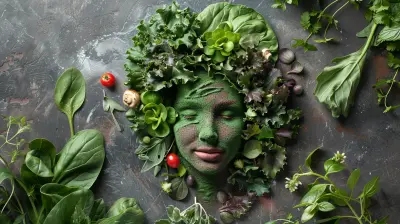Why Seasonal Eating is Beneficial for Your Body and the Planet
22 September 2025
Ever eaten a strawberry in December and thought, “Hmm… this tastes kind of off”? That’s because it wasn’t meant to be eaten in December! It was probably shipped halfway across the world, refrigerated for weeks, and now it tastes like a sad, watered-down version of itself.
Seasonal eating is about consuming fruits and veggies when they’re naturally grown and harvested in your local area. Not only does it make your taste buds happy, but it’s also great for your body, your wallet, and even our struggling little planet. Sounds too good to be true? Stick around—we’re about to break it all down. 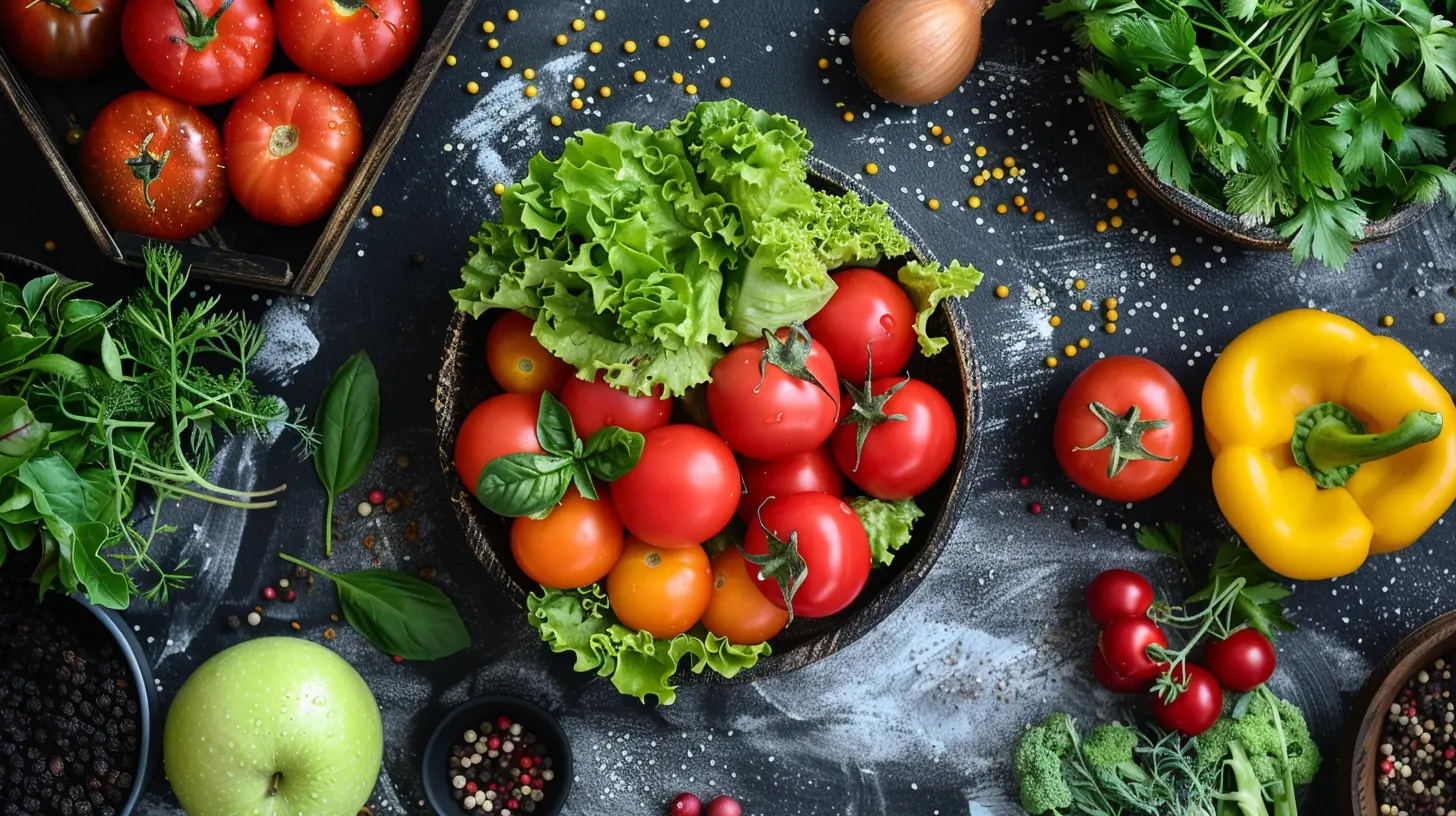
🌱 What Is Seasonal Eating, Anyway?
In simple terms, seasonal eating means munching on foods that are in season where you live. That means pumpkins in fall, watermelons in summer, and hearty root vegetables in winter.Think of it like this: Mother Nature is kind of like a meal planner. She gives us light, refreshing foods when it's hot and cozy, carb-heavy foods when it’s cold. Pretty genius, right?
But when we insist on eating avocados year-round or blueberries in the dead of winter, we’re fighting against nature's rhythm. And trust me, Mother Nature always wins. 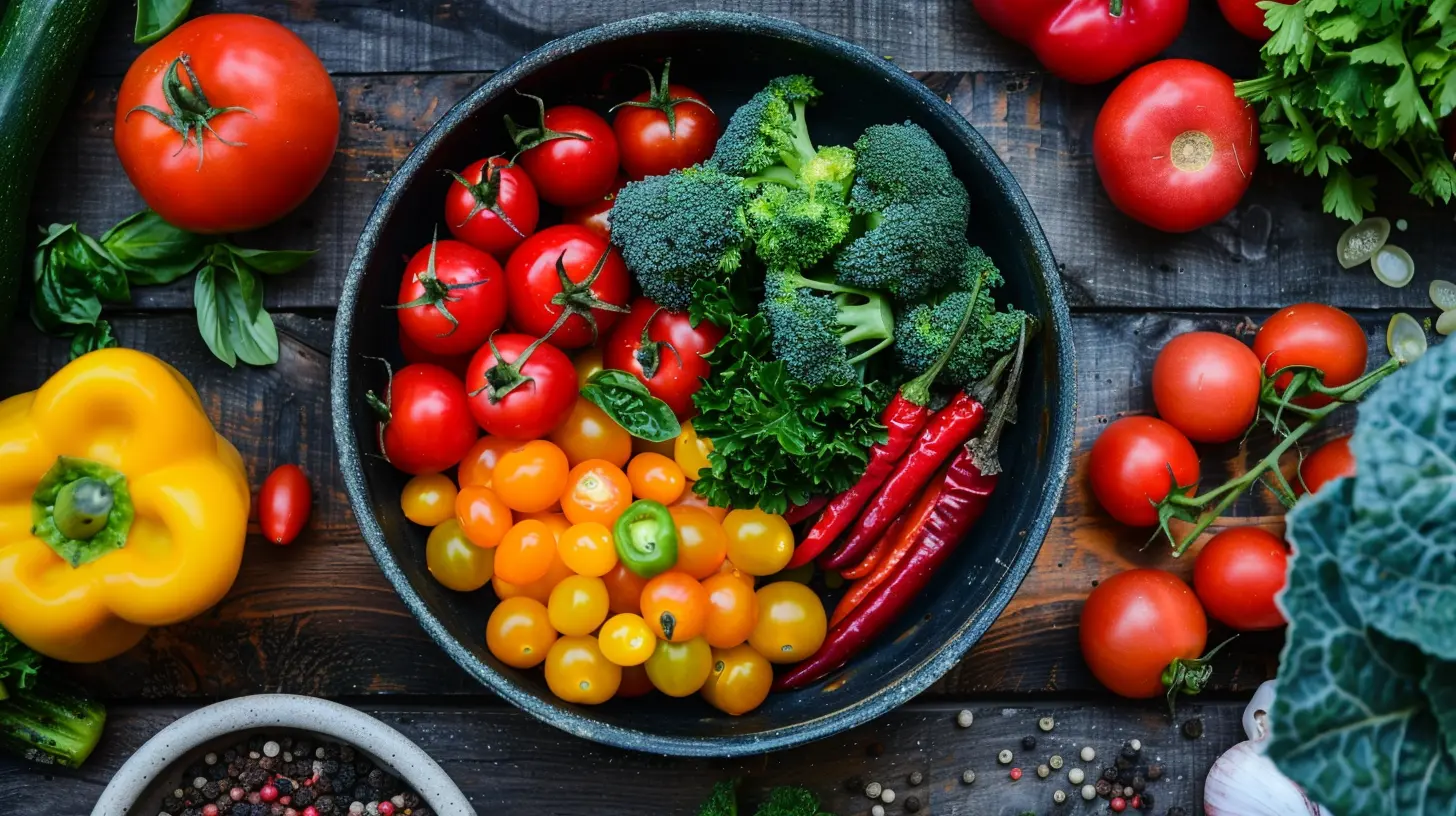
🥕 The Health Benefits of Seasonal Eating
Eating seasonally isn’t just about keeping things fresh and tasty. It also comes with a bunch of health perks!1. More Nutrients, Less Nonsense
Ever noticed how garden-fresh veggies taste WAY better than the limp, sad ones from the supermarket? That’s because freshly harvested produce is packed with nutrients.When food is picked at peak ripeness, it contains higher levels of vitamins and minerals. But when it’s grown in artificial conditions or stored for weeks, those nutrients start to fade. It’s like trying to keep your New Year's resolutions by February… things fall apart fast.
2. Better Digestion and Immunity
Nature provides what we need when we need it. Summer gives us hydrating fruits like watermelon and cucumbers to cool us down, while winter blesses us with foods packed with Vitamin C to keep colds away.Eating seasonally means you're aligning with nature’s built-in wellness plan, making it easier for your body to digest and absorb nutrients.
3. Fewer Chemicals and Preservatives
Out-of-season produce has to travel long distances to reach you, which means it’s often treated with chemicals to keep it looking fresh.The further your food comes from, the more preservatives, pesticides, and wax coatings it’s likely to have. Yikes. Do you really want your apple to have taken more international flights than you? 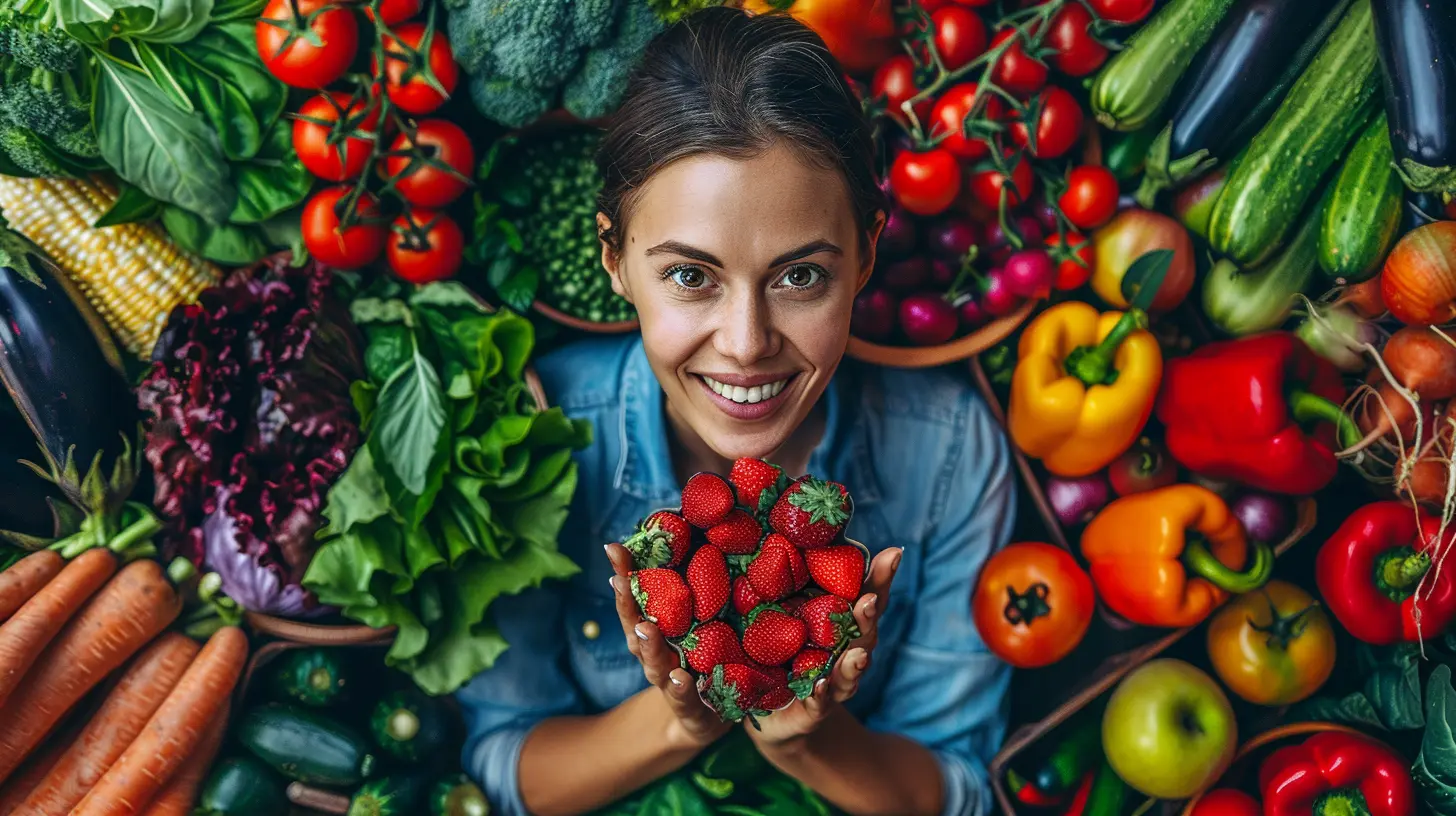
🌎 How Seasonal Eating Helps the Planet
Eating what’s in season doesn’t just benefit your health—it’s also a way to be kind to the planet.1. Cuts Down on Food Miles
Most of us don’t think about how far our food has traveled before it lands on our plates. But here’s a fun (and slightly horrifying) fact: an average meal in the U.S. travels about 1,500 miles before it reaches your table.That’s like driving from New York to Miami just for a salad. The amount of fuel used to transport food contributes massively to carbon emissions. Sticking with local, seasonal produce slashes these “food miles” and reduces your carbon footprint.
2. Supports Local Farmers
Buying in-season produce often means buying from local farmers. And let's be real—would you rather support a hardworking family farm or a massive food corporation that coats apples in wax and calls it a day?By eating seasonally, you’re putting money into your local economy and helping small farmers stay in business. Win-win!
3. Less Food Waste
Did you know that about 40% of food in the U.S. goes to waste? A lot of this waste comes from shipping and storing out-of-season foods that spoil before they even hit store shelves.When you eat seasonally, food gets from farm to table much quicker, meaning less spoilage and waste. It’s like fast food—except actually good for you. 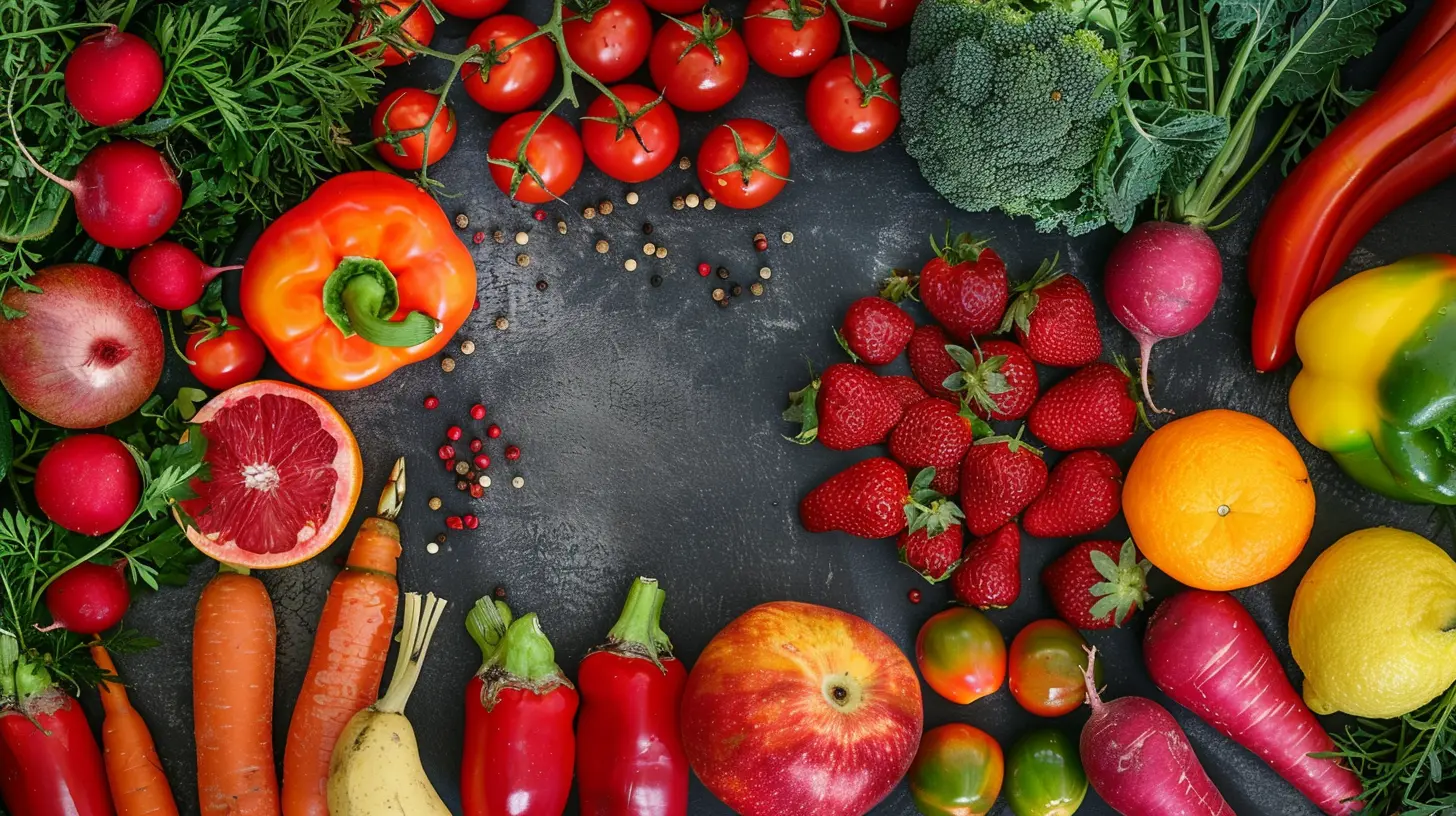
💰 Seasonal Eating Saves You Money
If you’ve ever been personally offended by the price of a single avocado in winter, you’ve already experienced the downside of out-of-season eating.Foods that are in season grow in abundance, which makes them cheaper. On the flip side, off-season foods require artificial growing conditions, long-distance transport, and extra storage, which all drive up costs.
Want to save a few bucks? Stick with produce that’s naturally thriving at that time of year.
🍓 How to Eat Seasonally (Without Losing Your Mind)
Switching to seasonal eating might sound complicated, but it doesn’t have to be. Here are some easy ways to get started:1. Check a Seasonal Produce Chart
Not sure what’s in season? No worries—just Google a seasonal produce chart for your region. There are plenty of free resources that tell you exactly what fruits and veggies are freshest each month.2. Visit Farmers' Markets
Farmers' markets are goldmines for seasonal eating. Since farmers sell what’s growing right now, you don’t have to think twice about whether it’s in season. Plus, you get to chat with the people who actually grow your food—how cool is that?3. Join a CSA (Community Supported Agriculture)
A CSA subscription is basically like a farm-to-table delivery service. Local farms offer weekly or monthly boxes filled with fresh, seasonal produce. It’s like getting a surprise veggie jackpot every week!4. Grow Your Own Food
Okay, not everyone has the time or space for a full-blown garden, but even growing a few herbs or tomatoes on your balcony counts. Trust me, nothing tastes better than something you grew yourself!5. Learn to Preserve Food
If you love a specific fruit or veggie and can’t bear to part with it in the off-season, try freezing, pickling, or canning it. That way, you can enjoy your favorite flavors year-round without relying on imported, overpriced produce.🌍 Small Changes, Big Impact
Seasonal eating isn’t about being perfect. It’s about making small, mindful choices that benefit not just your health but also the environment.You don’t have to give up bananas (let’s be real, that’s never happening) or swear off avocados forever. Just being more conscious about when and where you buy your produce can make a huge difference.
So next time you’re at the grocery store, ask yourself: “Is this in season? Or did it just fly first-class from another continent?” Your body—and the planet—will thank you.
all images in this post were generated using AI tools
Category:
NutritionAuthor:

Eileen Wood
Discussion
rate this article
1 comments
Alana Gates
Absolutely loved this article! Seasonal eating not only boosts our health but also supports the planet. Let’s celebrate fresh, local produce and enjoy the vibrant flavors each season brings! 🌱🥦🌍
October 10, 2025 at 3:27 AM

Eileen Wood
Thank you! I'm glad you enjoyed the article and appreciate the importance of seasonal eating for both our health and the planet! 🌱💚
